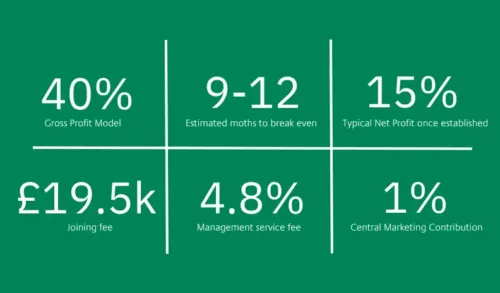
Talking from experience, starting a homecare business in the UK can be one of the most rewarding, frustrating and interesting experiences of your life.
It’s an exciting roller-coaster ride; making quick progress at some points and having to solve problems that you didn’t know existed previously at others.
Non-medical homecare has enjoyed some of the limelight of late, due to the vital role it plays in people’s lives up and down the country. It is a fast-evolving sector, that continues to play an ever-more important role in keeping our aging population safe and well.
What is non-medical homecare?
Non-medical home care, or ‘social care’ providers help people with day-to-day tasks that they are finding difficult.
This can range hugely from one shopping visit a week, to providing 24/7 care and double-handed care visits, using moving and handling equipment and supporting people at the end of their lives.
It is a big responsibility, administering medication, helping with personal care, and using specialist equipment, so it rightly has much more oversight than ‘home help’ or cleaning businesses.
It also adds more value, meaning longer relationships with clients, more intensive services, and higher revenues per client.
Before jumping in to starting your non-medical home health care business, consider the following:
– It can take 6-9 months to start trading – Setting up isn’t as simple as getting a website and recruiting a couple of carers. We talk later in this article about what it takes to get started.
– You need to get registered with the regulator – The Care Quality Commission (CQC) regulate the social care sector, and will inspect you before allowing you to start providing these services. They need to be assured that you’ll be able to provide care in keeping with their Key Lines of Enquiry; that your home care business is Safe, Effective, Caring, Responsive and Well-led.
– You will be responsible for people’s health and well-being – We’ve already mentioned this, but it’s important so at the risk of repeating ourselves, someone’s life will be in your company’s hands. Errors with medication, using equipment incorrectly, hiring the wrong people, can all have consequences to the people you support, and your reputation. You may also be legally responsible as well. It’s important to start a home care company knowing the responsibility this involves, and being committed to providing a safe, quality service.
– (Care) Location, Location Location – Not every area is equal when it comes to starting a care business. You’ll want to be in an area with enough population and population density to support your business. Socio-economic information and age demographics are all important factors, and that’s where territory analysis comes into its own.
– You’re nothing without your People – Every CQC-registered care company must have a Registered Manager; someone who is responsible for the quality of care your company provides. If you don’t come from a care management background, the hiring of the right Registered Care Manager is crucial. This person is responsible for driving quality, safety and effectiveness, as well as the ethos and culture of your company. They also need to be acceptable to CQC, who will interview them before accepting to register them.
– Get your systems sorted before you start – There will always be an element of ‘learning on the job’, but in non-medical homecare you need to hit the ground running to provide a CQC compliant service from day 1. That means you need to think about staff management timelines, how and how often you’ll review your clients’ care needs, what your recruitment system looks like to ensure compliance, and how you’ll work out your rosters to ensure no-one gets forgotten about.
– Work out your homecare business marketing strategy – Who are you selling to? What does your brand say about you? Why you as opposed to ABC Care down the road? How are you going to connect with your potential clients? You’ll need to have a plan for all these questions before getting started.
– Care Policies and Procedures – These are codified ways of working that make sure you make decisions and provide care in a standardised way. CQC will want to see a lot of these, and make sure you understand them, before registering you.
How do I start a private home care business?
RESEARCH, A LOT.
Immerse yourself in the sector, reading reports and resources from organisations across the spectrum, from Skills for Care, to Laing Buisson. They all provide insight into their own niche of the sector.
FRANCHISE OR INDEPENDENT?
the next step is to think about whether to start a home care franchise or start up on your own. Factors that inform this decision will be your experience, budget, timeframe, and personality. You can take our home care franchise quiz to get a feel for whether it will work for you
SHORTLIST AND MAKE CONTACT
If you decide franchising could be for you, have a look on directory sites and online to get a feel for what’s out there. Choose a shortlist, and make initial contact. They’ll be able to provide you with a lot more info about their particular franchise packages as well as more general advice about starting up a care company.
VISIT FRANCHISORS
Make a list of your priorities before visiting a few franchisors, to meet face to face and see their set-up. Do your due diligence by looking at CQC reports and talking to their franchisees.
BUSINESS PLANNING
Start writing your business plan. Some franchisors will help with this, some won’t. You can then use your business plan to apply for business funding. We work with franchise funding partners that can help with this process.
LOOK FOR OFFICES AND MANAGER
Once you’ve got funding in place, or at least a decision in principle, start looking for your office location and registered manager, both of which you’ll need to get your registration application in to CQC.
COUNTERSIGNED DBS CHECK
Apply for your own countersigned DBS check if you are planning to be the Nominated Individual with the CQC, as this can take a few weeks or months.
DETAILS, DETAILS
Plan your marketing, branding, recruitment offers, etc so you can hit the ground running, and get ready for the CQC registration interview. Also, research insurance needed – CQC will check this.
CQC INSPECTION
Once you’ve done the CQC registration inspection, you’ll be notified in a few weeks whether you’ve been successful, or whether you have been successful conditional of some changes or clarifications to your business plan.
GET STARTED
Get cracking with your marketing, networking, recruitment, and taking new clients on board, the hard work starts here!
What do I need to start a home care business?
Care has relatively low ‘barriers to entry’; there are no big equipment costs, you don’t need to buy or lease a big building and you can structure your home care business in a way that overheads generally grow alongside your revenue growth.
There are some minimum requirements however. Here’s a checklist of what you need to start a home care business:
- Time. You’re generally going to need to put time into your business to ensure it’s a success. As with any start-up, you can count on long days, calls coming in at weekends, and unexpected developments!
- Money. Although you can get up to 70% funding, funders will want you to put some ‘skin in the game’. Depending on your business plan, you will need £20,000 – £70,000 to put into your business.
- A DBS (Criminal Record) Check. CQC will check that directors of care companies are ‘fit people’. This doesn’t mean that you need to necessarily have a clean DBS check, but bear in mind that your past will be scrutinized to ensure you are not a risk to your clients.
- A Caring Nature. If you don’t naturally care about people and providing a good service, and are really looking for a hassle-free business, care isn’t for you. Our franchise partners report that as well as the financial rewards, the sense of achievement they get from a job well done is a crucial motivator.
- Be Willing and Able to Manage People. Care is a real people-business. To properly scale and grow your business, you’re going to recruit and manage an ever-growing team. Some people hate managing and working closely with others, whilst some thrive on the contact with others. If you’d rather lock yourself away in a dark room rather than organising a team of dispersed carers, starting a home care business might not be for you.
In conclusion, there is a lot to think about when it comes to setting up a non-medical home care company in the UK. Research, preparation, and good choices about the people and organisations to work with are key to a successful and sustainable home care start-up. If you’re interesting in finding out more about how Good Oaks can help you to set up your home care business, visit our home care franchise website.


